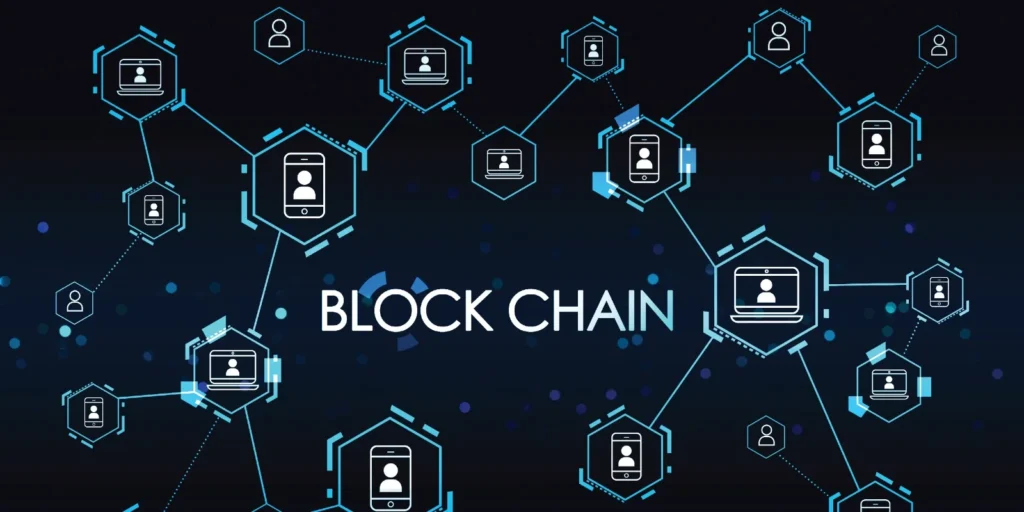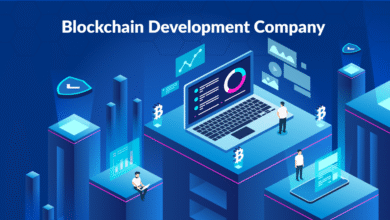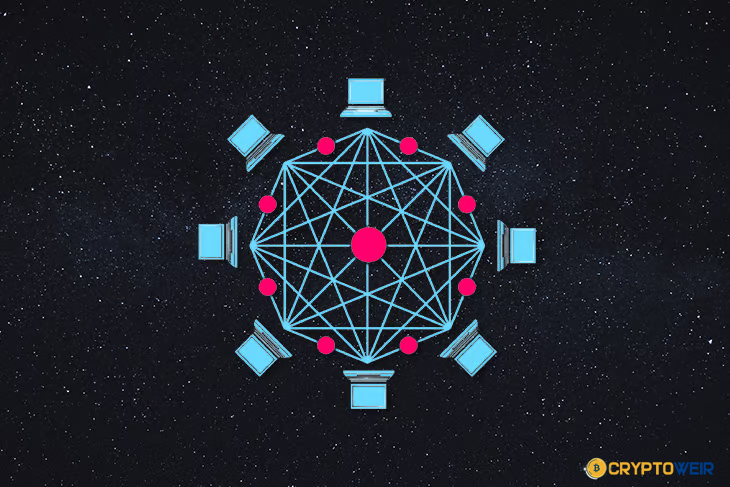
The cryptocurrency landscape has undergone significant evolution, rendering blockchain analytics platforms indispensable tools for businesses, investigators, and researchers. In this comprehensive blockchain analytics platform review, we’ll examine the leading solutions that help organizations track, analyze, and understand blockchain transactions across multiple networks.
Whether you’re a financial institution ensuring compliance, a law enforcement agency investigating crypto crimes, or a researcher studying blockchain patterns, choosing the right analytics platform can make or break your success. The blockchain analytics market has grown exponentially, with platforms now offering sophisticated features like real-time monitoring, risk scoring, and advanced visualization tools.
This detailed review covers everything from enterprise-grade solutions to affordable options for smaller organizations. We’ll analyze pricing, features, supported blockchains, and user experiences to help you make an informed decision. By the end of this guide, you’ll understand which blockchain analytics platform best suits your specific requirements and budget constraints.
What Are Blockchain Analytics Platforms?
Blockchain analytics platforms are specialized software solutions designed to interpret and analyze blockchain data. These powerful tools transform raw blockchain information into actionable insights, helping users understand transaction flows, identify patterns, and detect suspicious activities across various cryptocurrency networks.
Modern blockchain analytics platforms serve multiple purposes across different industries. Financial institutions use them for Anti-Money Laundering (AML) compliance, while law enforcement agencies leverage these tools for cryptocurrency investigations. Researchers and analysts utilize blockchain analytics to study market trends and network behavior patterns.
The core functionality of these platforms includes transaction tracking, address clustering, risk assessment, and compliance reporting. Advanced features often encompass real-time monitoring, automated alerts, and sophisticated visualization tools that make complex blockchain data accessible to non-technical users.
Key Features of Modern Analytics Platforms
Today’s blockchain analytics platforms offer comprehensive feature sets that address various user needs. Transaction tracing capabilities allow users to follow cryptocurrency movements across multiple addresses and exchanges. Address clustering algorithms group related addresses together, providing insights into entity behavior and ownership patterns.
Risk scoring mechanisms evaluate the likelihood that specific addresses or transactions are associated with illicit activities. These scores help organizations make informed decisions about customer onboarding, transaction processing, and compliance reporting requirements.
Visualization tools present complex blockchain data through interactive charts, graphs, and network diagrams. These visual representations make it easier for investigators and analysts to understand transaction patterns and identify suspicious activities or connections.
Top Blockchain Analytics Platform Review: Leading Solutions
Chainalysis: The Industry Leader
Chainalysis dominates the blockchain analytics space with its comprehensive suite of investigative and compliance tools. The platform supports over 100 cryptocurrencies and provides deep insights into transaction patterns, risk assessment, and compliance monitoring. Chainalysis Reactor offers powerful investigation capabilities, while KYT (Know Your Transaction) provides real-time transaction monitoring.
The platform’s strength lies in its extensive database of known addresses and entities, built through years of law enforcement collaboration and research. This knowledge base enables accurate attribution and risk assessment, making it invaluable for compliance teams and investigators.
Pricing for Chainalysis starts at approximately $16,000 annually for basic packages, with enterprise solutions costing significantly more. While expensive, the platform’s comprehensive features and industry reputation justify the investment for large organizations requiring robust analytics capabilities.
Elliptic: Comprehensive Compliance Solution
Elliptic provides enterprise-grade blockchain analytics with a focus on compliance and risk management. The platform offers real-time transaction monitoring, comprehensive reporting tools, and support for major cryptocurrencies, including Bitcoin, Ethereum, and numerous altcoins.
Elliptic’s Discovery platform excels at investigation workflows, providing investigators with intuitive tools for tracking cryptocurrency movements and identifying connections between addresses. The platform’s compliance solutions help financial institutions meet regulatory requirements while maintaining operational efficiency.
The pricing structure varies based on features and usage requirements, typically starting around $15,000 annually for basic compliance packages. Elliptic’s strong regulatory focus and user-friendly interface make it popular among financial institutions and compliance teams.
Crystal Blockchain: Advanced Analytics Engine
Crystal Blockchain, developed by Bitfury, offers sophisticated analytics capabilities with advanced visualization tools and comprehensive reporting features. The platform supports extensive cryptocurrency coverage and provides detailed transaction analysis, risk assessment, and compliance monitoring tools.
The platform’s strength lies in its advanced algorithms for address clustering and entity identification. Crystal’s investigation tools provide detailed transaction flows and connection analysis, making it valuable for both compliance and investigative use cases.
Crystal Blockchain typically costs between $12,000-$20,000 annually, depending on the specific package and requirements. The platform’s technical sophistication appeals to users requiring advanced analytics capabilities and detailed transaction insights.
CipherTrace: Security-Focused Analytics
CipherTrace specializes in cryptocurrency security and compliance, offering blockchain analytics tools designed for financial institutions and cryptocurrency businesses. The platform provides real-time monitoring, risk assessment, and comprehensive compliance reporting across multiple blockchain networks.
The platform’s unique selling proposition includes its focus on DeFi (Decentralized Finance) protocols and privacy coins, areas where many competitors have limited coverage. CipherTrace’s attribution capabilities help organizations understand the sources and destinations of cryptocurrency transactions.
Pricing information for CipherTrace is typically provided through custom quotes, with costs varying based on specific requirements and usage patterns. The platform’s specialized focus on emerging cryptocurrency sectors makes it attractive for organizations dealing with complex DeFi transactions.
Blockchain Analytics Platform Review: Mid-Market Solutions
Merkle Science: Emerging Market Leader
Merkle Science has rapidly gained recognition in the blockchain analytics space, offering comprehensive investigation and compliance tools at competitive pricing. The platform provides transaction monitoring, risk assessment, and detailed reporting capabilities across major cryptocurrency networks.
The platform distinguishes itself through its user-friendly interface and competitive pricing structure. Merkle Science offers robust API integration capabilities, making it suitable for organizations requiring custom implementations or third-party integrations.
Pricing for Merkle Science typically starts around $8,000 annually, making it an attractive option for mid-market organizations seeking professional-grade analytics capabilities without enterprise-level costs. The platform’s growing feature set and competitive pricing position it well for continued market growth.
Also, More: ParallelChain will make it Easier to Track Luggage and keep Aviation Data Safe.
TRM Labs: Compliance-Focused Solution
TRM Labs provides blockchain analytics specifically designed for financial crime compliance and investigation. The platform offers real-time monitoring, case management tools, and comprehensive reporting capabilities tailored for compliance teams and investigators.
The platform’s strength lies in its focus on usability and workflow optimization. TRM Labs has designed its interface to match the needs of compliance professionals, providing streamlined workflows for transaction monitoring and investigation processes.
TRM Labs pricing varies based on features and usage requirements, typically falling in the $10,000-$15,000 annual range for standard packages. The platform’s compliance focus and user-centric design make it popular among financial institutions and compliance teams.
Scorechain: European Analytics Leader
Scorechain offers blockchain analytics solutions with a strong focus on European regulatory requirements and compliance standards. The platform provides comprehensive transaction monitoring, risk assessment, and reporting tools designed to meet European financial regulations.
The platform’s regional expertise and regulatory focus make it particularly valuable for European organizations navigating complex compliance requirements. Scorechain’s tools are specifically designed to address AMLD5 and other European regulatory frameworks.
Pricing for Scorechain varies based on specific requirements and geographic deployment, typically ranging from €8,000 €15,000 annually. The platform’s European focus and regulatory expertise appeal to organizations operating within European jurisdictions.
Choosing the Right Blockchain Analytics Platform
Assessing Your Organization’s Needs
Selecting the appropriate blockchain analytics platform requires careful consideration of your organization’s specific requirements, budget constraints, and technical capabilities. Different platforms excel in various areas, making it essential to identify your primary use cases and priorities before making a decision.
Compliance-focused organizations should prioritize platforms with strong regulatory reporting capabilities and real-time monitoring features. Investigation teams require robust visualization tools and comprehensive transaction tracking capabilities. Research organizations might benefit from platforms offering extensive historical data and advanced analytics features.
Budget considerations play a crucial role in platform selection. Enterprise-grade solutions like Chainalysis and Elliptic provide comprehensive features but require significant financial investment. Mid-market solutions offer professional capabilities at reduced costs, making them suitable for smaller organizations or those with limited budgets.
Technical Integration Requirements
Technical integration capabilities significantly impact platform usability and operational efficiency. Organizations with existing compliance systems should prioritize platforms offering robust API integration and data export capabilities. Custom reporting requirements may necessitate platforms with flexible reporting engines and data visualization tools.
User training and support requirements vary significantly between platforms. Some solutions require extensive technical expertise, while others are designed for non-technical users. Consider your team’s technical capabilities and available training resources when evaluating different options.
Scalability considerations become important for growing organizations or those anticipating increased analytics requirements. Enterprise platforms typically offer better scalability but at higher costs, while smaller solutions might require migration as requirements grow.
Supported Cryptocurrencies and Networks
Different blockchain analytics platforms support varying numbers of cryptocurrencies and blockchain networks. Bitcoin and Ethereum support is universal, but coverage of altcoins, privacy coins, and emerging networks varies significantly between providers.
Organizations dealing with diverse cryptocurrency portfolios require platforms with extensive blockchain coverage. Privacy coin support (Monero, Zcash) is limited across most platforms due to technical challenges, requiring specialized solutions for organizations monitoring these assets.
DeFi protocol support has become increasingly important as decentralized finance grows. Platforms like CipherTrace specialize in DeFi analytics, while traditional providers are expanding their coverage to include major DeFi protocols and decentralized exchanges.
Advanced Features in Blockchain Analytics Platforms
Real-Time Monitoring and Alerts
Modern blockchain analytics platforms increasingly offer real-time monitoring capabilities that track transactions as they occur on various blockchain networks. These systems provide instant alerts when suspicious activities or high-risk transactions are detected, enabling immediate response and investigation.
Alert customization allows organizations to define specific criteria for different types of monitoring. Compliance teams can set alerts for transactions exceeding certain thresholds, while investigators might monitor specific addresses or entity clusters for unusual activity patterns.
Integration with existing security and compliance systems enhances the value of real-time monitoring. Many platforms offer webhook integrations, email alerts, and API endpoints that can trigger automated responses or notifications in external systems.
Machine Learning and AI Integration
Artificial intelligence and machine learning technologies are increasingly integrated into blockchain analytics platforms, providing enhanced pattern recognition and anomaly detection capabilities. These systems can identify suspicious transaction patterns that might escape manual analysis.
Behavioral analysis algorithms learn from historical transaction data to identify unusual patterns or deviations from normal behavior. This capability helps organizations detect new types of financial crimes or suspicious activities that haven’t been previously categorized.
Predictive analytics features attempt to forecast future risks or identify emerging threats based on current transaction patterns and historical data. While still evolving, these capabilities show promise for proactive risk management and fraud prevention.
Custom Reporting and Visualization
Blockchain Analytics Platform Review: Advanced reporting capabilities enable organizations to generate custom reports tailored to specific requirements or regulatory standards. These features are particularly valuable for compliance teams that must produce regular reports for regulators or internal stakeholders.
Blockchain Analytics Platform Review: Interactive visualization tools help users understand complex transaction networks and patterns through graphical representations. Network diagrams, flow charts, and statistical visualizations make blockchain data accessible to non-technical stakeholders and decision-makers.
Blockchain Analytics Platform Review: Data export capabilities allow organizations to integrate blockchain analytics data with existing business intelligence systems or create custom analyses using external tools. Standard formats like CSV, JSON, and XML enable seamless data integration across different platforms.
Industry-Specific Applications
Financial Services Compliance
Financial institutions represent the largest user base for blockchain analytics platforms, utilizing these tools to meet Anti-Money Laundering (AML) and Know Your Customer (KYC) requirements. Banks and payment processors use analytics platforms to monitor customer transactions and assess risks associated with cryptocurrency-related activities.
Regulatory compliance requirements continue to evolve, with different jurisdictions implementing varying standards for cryptocurrency monitoring and reporting. Analytics platforms help financial institutions navigate these complex requirements while maintaining operational efficiency.
Risk assessment capabilities enable financial institutions to make informed decisions about customer onboarding and transaction processing. Automated risk scoring helps institutions identify high-risk customers or transactions that require additional scrutiny or reporting.
Law Enforcement Investigations
Law enforcement agencies worldwide increasingly rely on blockchain analytics platforms for cryptocurrency-related investigations. These tools help investigators track stolen funds, identify suspects, and build cases involving cryptocurrency crimes.
Criminal investigation workflows require specialized features like case management, evidence collection, and court-ready reporting. Leading platforms provide tools specifically designed for law enforcement use cases, including secure evidence handling and chain-of-custody documentation.
International cooperation in cryptocurrency investigations benefits from standardized analytics tools and methodologies. Platforms that support multiple languages and regulatory frameworks facilitate collaboration between law enforcement agencies across different jurisdictions.
Research and Academic Applications
Academic researchers and market analysts use blockchain analytics platforms to study cryptocurrency markets, network behavior, and adoption patterns. These applications require different features than compliance or investigation use cases, focusing on data analysis and research capabilities.
Market research applications include studying transaction volume patterns, network adoption rates, and user behavior across different cryptocurrencies. Analytics platforms provide the data necessary for academic research and market analysis studies.
Open-source alternatives and academic pricing programs make blockchain analytics accessible to researchers with limited budgets. Some platforms offer reduced pricing or free access for academic research purposes, supporting the broader understanding of blockchain technology and cryptocurrency markets.
Future Trends in Blockchain Analytics
Integration with Traditional Finance
The convergence of traditional finance and cryptocurrency markets drives demand for analytics platforms that can bridge both worlds. Financial institutions require tools that integrate cryptocurrency monitoring with existing compliance and risk management systems.
Central Bank Digital Currencies (CBDCs) will create new analytics requirements as governments launch digital versions of traditional currencies. Analytics platforms must evolve to support these new digital assets while maintaining existing cryptocurrency coverage.
Cross-border payment monitoring becomes increasingly complex as cryptocurrency adoption grows. Analytics platforms must provide comprehensive coverage of both traditional and digital payment networks to support effective compliance and investigation efforts.
Privacy and Regulatory Compliance
Privacy regulations like GDPR create challenges for blockchain analytics platforms that must balance transparency with privacy protection. Platforms are developing features that provide necessary analytics capabilities while respecting individual privacy rights.
Regulatory harmonization efforts across different jurisdictions may standardize blockchain analytics requirements, simplifying compliance for global organizations. However, regional differences in privacy and financial regulations continue to create complexity.
Zero-knowledge proof technologies and other privacy-preserving innovations present ongoing challenges for blockchain analytics. Platforms must evolve to maintain effectiveness while respecting legitimate privacy protections and regulatory requirements.
Implementation Best Practices
Getting Started with Blockchain Analytics
Blockchain Analytics Platform Review: Successful blockchain analytics implementation begins with clear objective definition and stakeholder alignment. Organizations should identify specific use cases, success metrics, and resource requirements before selecting and implementing analytics platforms.
Blockchain Analytics Platform Review: Pilot projects help organizations understand platform capabilities and limitations before committing to full-scale implementation. Starting with specific use cases or a limited scope enables teams to gain experience and refine processes before expanding analytics capabilities.
Blockchain Analytics Platform Review: Training and change management are crucial for successful adoption. Teams must understand both the technical capabilities of analytics platforms and the regulatory or business context in which they operate. Comprehensive training programs ensure effective platform utilization.
Integration with Existing Systems
Blockchain Analytics Platform Review: Effective integration with existing compliance, risk management, and investigation systems maximizes the value of blockchain analytics platforms. API integration enables automated data flows and reduces the manual work required for analytics and reporting.
Blockchain Analytics Platform Review: Data governance policies ensure appropriate access controls, data retention, and quality management for blockchain analytics data. Organizations must establish clear policies for data usage, sharing, and retention that comply with regulatory requirements and internal policies.
Blockchain Analytics Platform Review: Performance monitoring and optimization help organizations maximize the value of their analytics investments. Regular assessment of platform usage, effectiveness, and costs enables continuous improvement and optimization of analytics capabilities.
Cost-Benefit Analysis
Total Cost of Ownership
Blockchain Analytics Platform Review: Blockchain analytics platform costs extend beyond initial licensing fees to include implementation, training, integration, and ongoing support expenses. Organizations must consider the total cost of ownership when evaluating different platform options.
Blockchain Analytics Platform Review: Licensing models vary significantly between providers, with some offering subscription-based pricing while others use transaction-based or usage-based models. Understanding these different approaches helps organizations select cost-effective solutions that match their usage patterns.
Blockchain Analytics Platform Review: Hidden costs can significantly impact total ownership expenses. These might include additional fees for extra users, premium support, custom integrations, or expanded cryptocurrency coverage. Careful evaluation of all potential costs prevents budget surprises during implementation.
Measuring Return on Investment
Blockchain Analytics Platform Review: Quantifying the return on investment for blockchain analytics platforms requires identifying specific benefits and measuring their financial impact. Compliance cost reduction, investigation efficiency improvements, and risk mitigation benefits contribute to overall ROI.
Blockchain Analytics Platform Review: Risk reduction benefits are often the most significant source of ROI for financial institutions. Avoiding regulatory fines, preventing fraud losses, and reducing investigation costs can quickly justify analytics platform investments.
Blockchain Analytics Platform Review: Operational efficiency improvements contribute to long-term ROI through reduced manual work, faster investigation completion, and improved compliance processes. These benefits accumulate over time and often exceed initial platform costs.
Conclusion
Blockchain Analytics Platform Review: This comprehensive blockchain analytics platform review reveals a mature market offering sophisticated solutions for various organizational needs and budgets. From enterprise-grade platforms like Chainalysis and Elliptic to emerging solutions like Merkle Science and TRM Labs, organizations have numerous options for implementing effective blockchain analytics capabilities.
Blockchain Analytics Platform Review: The key to successful platform selection lies in understanding your specific requirements, budget constraints, and technical capabilities. Compliance-focused organizations should prioritize platforms with strong regulatory reporting features, while investigation teams require robust visualization and tracking capabilities. Mid-market solutions offer professional capabilities at reduced costs, making advanced analytics accessible to smaller organizations.
FAQs
Q: What is the average cost of a blockchain analytics platform?
Professional blockchain analytics platforms typically cost between $8,000-$50,000 annually, depending on features, supported cryptocurrencies, and usage requirements. Enterprise solutions like Chainalysis can exceed $100,000 annually for comprehensive packages with premium support and advanced features.
Q: How accurate are blockchain analytics platforms in identifying illicit activities?
Blockchain Analytics Platform Review: Modern blockchain analytics platforms achieve accuracy rates of 85-95% for identifying known illicit addresses and high-risk transactions. However, accuracy varies based on the specific cryptocurrency, transaction complexity, and the platform’s database quality. False positives and false negatives remain challenges that require human oversight and verification.
Q: Can blockchain analytics platforms track privacy coins like Monero?
Blockchain Analytics Platform Review: Most blockchain analytics platforms have limited capabilities for tracking privacy coins like Monero, Zcash, and Dash due to their enhanced privacy features. While some platforms claim to support privacy coins, their effectiveness is significantly reduced compared to transparent blockchains like Bitcoin and Ethereum.
Q: Do I need technical expertise to use blockchain analytics platforms?
Blockchain Analytics Platform Review: Blockchain Analytics Platform Review: Modern blockchain analytics platforms are designed for non-technical users, with intuitive interfaces and automated features that don’t require programming knowledge. However, effective use still requires an understanding of blockchain concepts, compliance requirements, and investigation methodologies. Most providers offer training programs to help users maximize platform effectiveness.
Q: How long does it take to implement a blockchain analytics platform?
Blockchain Analytics Platform Review: Implementation timeframes vary from 2-12 weeks, depending on platform complexity, integration requirements, and organizational readiness. Simple implementations with minimal integration can be completed in 2-4 weeks, while complex enterprise deployments with extensive system integration may require 8-12 weeks or longer.











